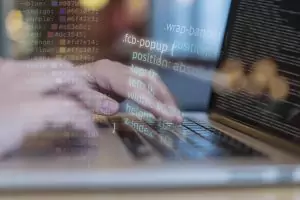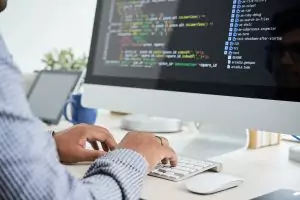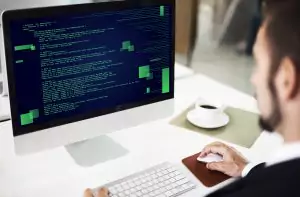Learning a programming language like Python can open up a world of opportunities for individuals seeking to enter the field of software development, data analysis, or automation. However, a common question that arises is: How long does it take to learn Python? In this article, we will explore the factors that influence the learning duration, provide practical tips for efficient learning, and discuss the key concepts to focus on during your Python learning journey.
Understanding the Learning Duration
The time it takes to learn Python varies depending on several factors. Some of the main factors that influence the learning duration include: experience, learning approaches, and time that you have to dedicate to learning Python.
Let’s take a look at Previous Programming Experience. If you have prior experience with programming, you may find it easier to grasp Python concepts and syntax, thus potentially shortening the learning duration.
Moving on to the Learning Method. Choosing a well-structured course aligned with your goals can accelerate your learning progress. Online platforms like Coursera offer specialized Python courses designed to help learners grasp the fundamentals efficiently.
And last but not least, Time Devoted to Learning. Consistency is key when learning Python. Devoting a regular amount of time each day to practice and study Python concepts will yield better results than sporadic or irregular learning sessions.
Learning Python Fundamentals
To establish a solid foundation in Python, it generally takes around two to six months of dedicated learning. However, it’s important to note that learning durations can vary based on individual learning pace and dedication. With structured courses like the Python for Everybody Specialization on Coursera, which requires around four months to complete, learners spending six hours per week can gain proficiency in Python fundamentals.
During this initial learning phase, learners typically focus on the following key concepts:
- Variables and Types
- Object and Data Structures (strings, integers, floats, etc.)
- Indexing and Slicing
- Comparison Operators
- For and While Loops
- Functions
- Lists, Dictionaries, and Tuples
- Reading and Writing to Files
- Classes and Objects
- Web Scraping
- Application Programming Interfaces (APIs)
Progressing Towards Mastery
Learning something new starts with understanding theory. When you’ve learnt the ropes, it is time to move further.
Advancing Python Skills
Once you have acquired a solid understanding of the fundamental concepts, you can start honing your Python skills based on your unique goals. Whether you aim to become a data analyst, application developer, or automation expert, you can tailor your learning path accordingly.
Mastering Python
Mastery of Python is an ongoing journey rather than a fixed destination. With Python’s extensive library ecosystem and its continuous evolution, there is always something new to learn. Python users have access to a wide range of libraries, such as TensorFlower for machine learning and Pandas for data manipulation, which can enhance their programming capabilities.
Practical Tips for Efficient Learning
Coding may only look intimidating. Frankly, it is not as difficult as you think. To optimize your learning journey and make the most of your efforts, here are some practical tips to consider.
Code Every Day
Consistency is crucial when learning Python. Set aside dedicated time each day, even if it’s just 15 minutes, to practice coding. Online courses like Python for Everybody provide structured materials that make it easier to incorporate short learning sessions into your daily routine.
Start with the Fundamentals
Regardless of your ultimate goals, starting with the basics is essential. Familiarize yourself with fundamental Python concepts and syntax before delving into more complex topics. Building a strong foundation will pave the way for smoother progression in your learning journey.
Focus on Logic Over Syntax
Understanding the underlying logic of your code is more important than memorizing syntax. Instead of getting caught up in syntactical details, focus on comprehending the purpose and functionality of your code. Syntax can always be looked up, but grasping the logic will enhance your problem-solving abilities.
The Versatility and Job Opportunities in Python
Python’s versatility is one of its key strengths. It is a general-purpose programming language that can be applied to various domains and tasks. Some common applications of Python include:
- Statistical Analysis
- Data Visualization
- Machine Learning
- Task Automation or Scripting
- Web and Software Development
Learning Python can open doors to a wide range of career opportunities. Python’s popularity in the job market is consistently growing, with various job roles requiring Python skills. Some potential job titles include:
- Data Analyst
- Backend Developer
- Quality Assurance Engineer
- Operations Automation Engineer
- Python Developer
- Full-Stack Developer
- Data Engineer
- Data Scientist
- Machine Learning Engineer
Conclusion
Learning Python is an exciting journey that offers numerous opportunities for personal and professional growth. While the learning duration may vary based on individual factors, a dedicated approach and consistent practice can help you master the fundamentals of Python within a few months. Remember to focus on logic, leverage practical learning tips, and align your learning path with your career goals. With Python’s versatility and the increasing demand for Python skills, investing time in learning Python is a valuable endeavor that can lead to a rewarding career in various industries.
FAQ
Can I learn Python on my own?
Absolutely! Python is considered one of the most beginner-friendly programming languages, and there are abundant learning resources available online. With self-discipline, dedication, and access to quality learning materials, you can successfully learn Python on your own.
Is Python hard to learn for beginners?
Python is renowned for its simplicity and readability, making it an excellent choice for beginners. Its syntax is designed to be intuitive and human-friendly, reducing the learning curve compared to some other programming languages. With proper guidance and practice, Python can be relatively easy to learn.
Do I need any prior programming experience to learn Python?
No, prior programming experience is not necessary to start learning Python. Python is often recommended as a first programming language precisely because of its beginner-friendly nature. However, having prior experience with any programming language can potentially accelerate your Python learning process.
How can I enhance my Python learning process?
To optimize your Python learning journey, consider experimenting with real-world projects to reinforce your understanding, engaging in coding challenges and exercises to sharpen your problem-solving skills, and collaborating with others by participating in coding meetups or online forums. Also, you might consider exploring Python’s extensive library ecosystem to expand your knowledge and staing up to date with the latest trends and updates in the Python community.
Can I learn Python quickly if I already know another programming language?
Yes, having prior experience with another programming language can be advantageous when learning Python. Many programming concepts are transferrable across languages, so you can leverage your existing knowledge to grasp Python more quickly. However, keep in mind that Python does have its unique features and best practices that you’ll need to familiarize yourself with.
What are the recommended learning resources for Python?
There are numerous learning resources available for Python learners. Some highly regarded options include: online platforms like Coursera, Udemy, and Codecademy, which offer structured Python courses. Also, you can read books such as “Python Crash Course” by Eric Matthes and “Automate the Boring Stuff with Python” by Al Sweigart. And additionally, check out YouTube tutorials and video lectures from experienced Python developers and educators.
How long does it take to master Python?
Mastering Python is a continuous journey rather than a fixed endpoint. The duration to reach mastery depends on various factors, including your prior experience, learning dedication, and the depth of knowledge you aim to achieve. It can take several years of practice and hands-on experience to become a proficient Python developer.
Are there any job opportunities for Python developers?
Yes, Python developers are in high demand across different industries. Job opportunities for Python developers include positions such as data analyst, software engineer, web developer, data scientist, machine learning engineer, and more. Python’s versatility and wide adoption make it a valuable skillset in today’s job market.
Follow us on Reddit for more insights and updates.





Comments (0)
Welcome to A*Help comments!
We’re all about debate and discussion at A*Help.
We value the diverse opinions of users, so you may find points of view that you don’t agree with. And that’s cool. However, there are certain things we’re not OK with: attempts to manipulate our data in any way, for example, or the posting of discriminative, offensive, hateful, or disparaging material.